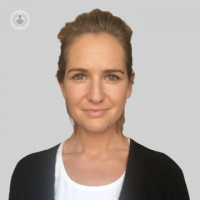What does couples therapy consist of?
Escrito por:Couples therapy, also known as relationship therapy, is a form of psychotherapy designed to help couples improve their relationships. Although it is often thought of as therapy for couples in romantic relationships, other types of relationships can also benefit from this approach, including family relationships, friendships, or work partnerships that may be facing conflict. In romantic relationships too, there are many variations beyond the norm of a cis/heterosexual couple in a monogamous relationship that often present in couples therapy.

Essentially, couples or relationship therapy is for everyone. Relationships are often the source of our greatest joys in life, and yet they are also so often the cause of our deepest and most painful struggles. Couples therapy can be a useful tool to navigate some of these struggles; it provides couples with a safe, reflective space where partners can explore their relational difficulties and work on enhancing the quality of their connection with one another.
Whether the relationship is facing significant challenges or simply needs some fine-tuning, couples therapy can facilitate a more honest, connected conversation between individuals helping them to address concerns, improve communication, and work through conflicts. Couples therapy may be valuable for relationship pairs who may be feeling stuck, unsure whether to part ways or stay together and face the challenges that strain their relationship. Some of these challenges might include communication problems, infidelity, trust, intimacy, and sexual issues as well as emotional distance, financial conflicts, life transitions, stress/anxiety, parenting disagreements and/or unresolved conflicts.
Talking to someone outside of the usual dynamic or recurring pattern that couples often find themselves in, can offer a way forward to help partners truly listen to each other and hear what each person is trying to communicate. An important part of couples therapy therefore involves each partner expressing their own thoughts, feelings, and experiences, but also learning to understand the other person’s perspective. Having a therapist present during this initial process can make things feel a bit easier, as partners tend to feel safer and more willing to express their concerns.
With the guidance of a therapist each person can learn to face the challenges within the relationship with greater curiosity, courage and compassion. Additionally, the couple will receive useful feedback on the dynamic between them, helping shed light on hidden aspects of the relationship or biases that may not be fully acknowledged within the relationship. As part of this process, partners become more aware of unhelpful behaviours and communication styles that can be addressed and responded to differently.
One of the key goals of couples therapy is to foster better communication. Often, miscommunication and unmet needs or expectations are at the root of relational distress. Effective communication is foundational for building trust, understanding, and emotional intimacy in a relationship. Therapy helps to facilitate a more open, honest and explicit dialogue, where partners learn to actively listen to each other’s needs and difficulties, and express feelings without fear of judgment or blame.
Conflict resolution is another crucial aspect of couples therapy. Relationships naturally encounter disagreements, but unresolved conflict can lead to resentment and emotional distance. In couples therapy the therapist acts as a mirror, helping couples to identify patterns of behaviour or ways of relating that may be contributing towards their issues. By prioritising clear and compassionate communication, couples can strengthen their bond and learn to navigate conflicts more effectively.
In summary, couples therapy is a facilitative space for coupes to work through the difficulties that may be preventing a deeper connection, helping them to explore the way they co-create the quality of their relationship and decide how they wish to move forward. It is not only for couples in crisis; many seek therapy as a preventative measure or to strengthen an already healthy bond.
Regardless of the situation, couples therapy can be transformative in helping couples grow together, improve communication, resolve conflicts and ultimately deepen their emotional connection by building a more satisfying and fulfilling relationship.


